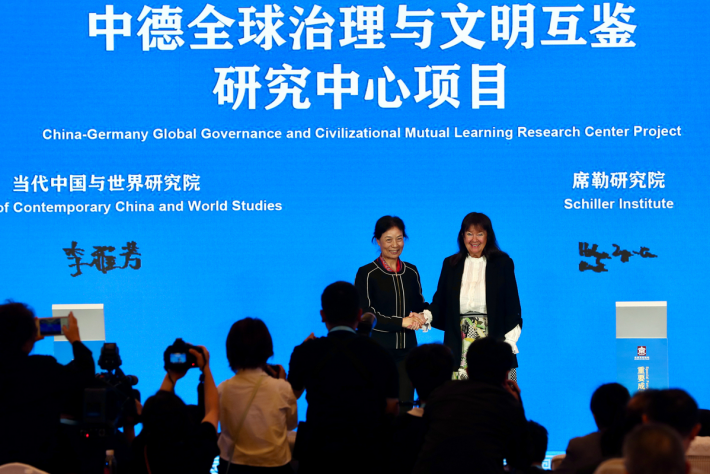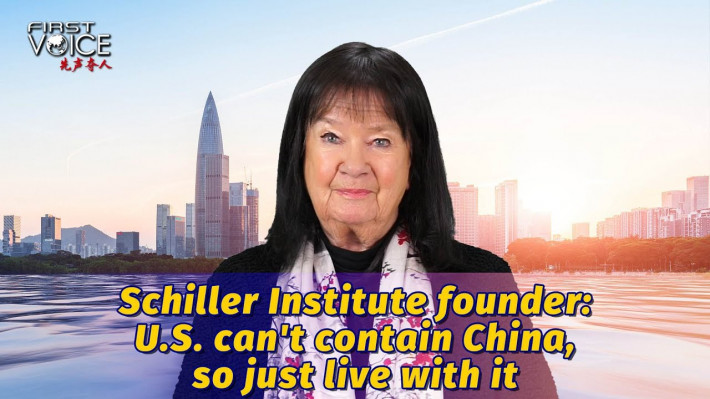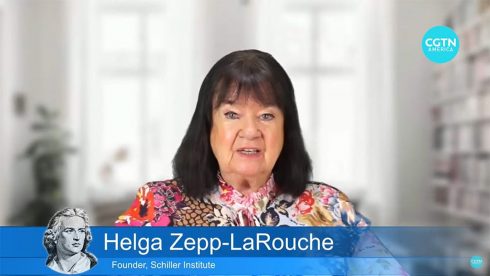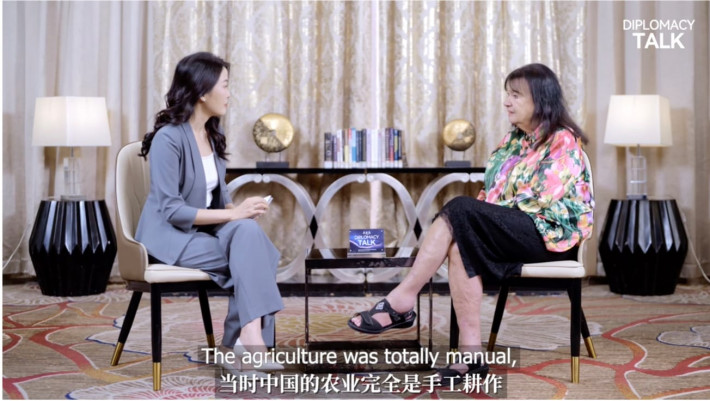by Helga Zepp-LaRouche
The following article by Helga Zepp-LaRouche was published today on CGTN:
The fourth visit of Emmanuel Macron in his capacity as president of France comes at a moment of strategic turmoil at several crisis spots around the world, on which China and France don’t have identical views. But since the strategic stability in the world requires stable and mutually beneficial relations between China and the European Union, Macron’s visit could help to improve the overall dynamics.
France has a special importance for China ever since several leaders of the Communist Party of China (CPC), such as Zhou Enlai and Deng Xiaoping, studied in France in the early 20th century. At that time, some 4,000 Chinese young men went to France to study, inspired by the wish to modernize China. Many of them went to study and work in the city of Montargis. Deng Xiaoping was among them. It is there that politicized by the Russian revolution, they decided, in discussion with Mao Zedong, to launch the CPC in 1921.
Such a historical foundation of relations could be beneficial when Europe is struggling for its true identity, divided between the so-called Coalition of the Willing — those who want to continue the war in Ukraine, and the countries that see the advantage of strengthening relations with the BRICS countries as a whole, such as Spain, Italy, Portugal, Iceland, Hungary and Slovakia.
France has gone through five different prime ministers in the last two years, while Macron’s approval rating has recently hit a historic low of below 20 percent. The country is overindebted, and has difficulties agreeing on a budget for the coming year, due to social cuts in various areas. Macron therefore will seek to improve cooperation in economic and trade matters, encouraging more investments from Chinese companies and improved market access for French exports.
During the visit, officials from both nations are expected to sign several agreements in the energy, food industry and aviation sectors.
Given the ambitious orientation of China’s 15th Five-Year Plan (2026-2030), with its emphasis on innovation as the driver of the economy, the increased budget for basic research and development and advances in so-called disruptive technologies will open potentially interesting perspectives for more cooperation with France.
France has traditionally been a leading country in aviation, space, nuclear energy and fusion technology, but in recent years has been falling behind. Cooperation with China in these fields could be a welcome boost for the French economy to overcome its present difficulties.
This could also involve third countries. The International Thermonuclear Experimental Reactor, where more than 30 states including China are cooperating, is located in south of France. It is an excellent example of international cooperation in the high-tech sector, benefiting all participating states.
The recent opening of the Great Ethiopian Renaissance Dam in Ethiopia is another example of such multinational cooperation and successful joint ventures in third countries. For this project, Chinese, Ethiopian, Italian and French firms cooperated successfully to not only provide electricity to Ethiopia, but also to enable it to export electricity to neighboring countries.
With European economies being interwoven, the French economic difficulties are closely related to those of the other European economies, especially Germany’s. The head of the Federation of German Industries (BDI) has just published a report, describing the national German economy as being in “free fall.”
According to BDI President Peter Leibinger, the German economy is “experiencing its deepest crisis since the founding of the Federal Republic,” and he expects production to slump by two percent this year, marking the fourth consecutive year of decline.
With France and Germany, the two largest economies of Europe which are closely tied and both in an existential crisis, Macron’s visit could potentially represent a turning point. China’s success and breakthroughs in many of the most advanced high-tech areas could be an inspiration for Europe. They offer many areas of cooperation, particularly in Africa.
It will also be important to improve and upgrade people-to-people relations, especially an increased exchange of youth, since the young people of Europe can benefit from the optimistic outlook of the young people in China.
(If you want to contribute and have specific expertise, please contact us at opinions@cgtn.com. Follow @thouse_opinions on X to discover the latest commentaries in the CGTN Opinion Section.)
















